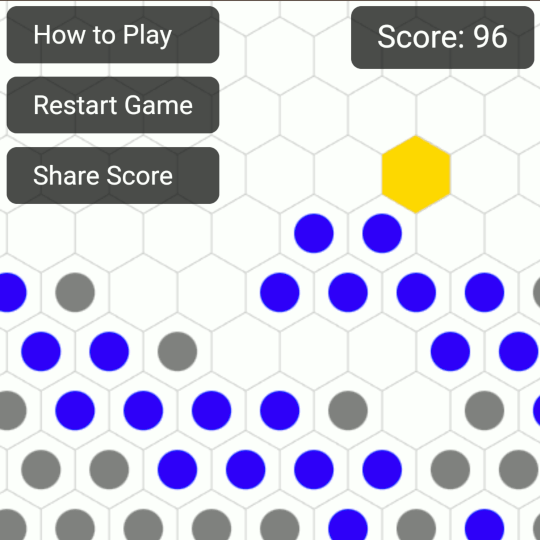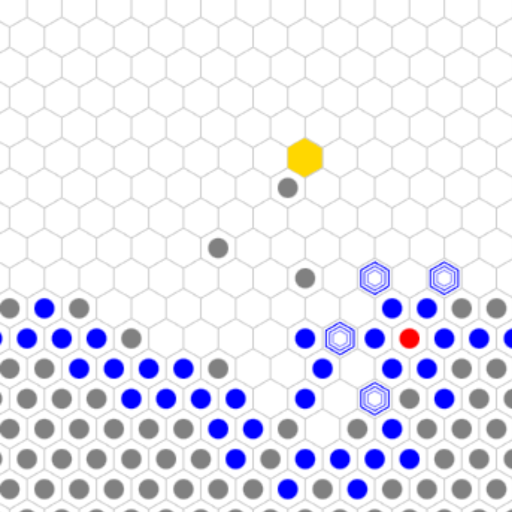By Michael Hartley
Hex Hopper is an exciting puzzle game that challenges you to navigate your playing pieces through a hexagonal grid. Your goal is to get a piece to the end tile by hopping over other pieces. It's a test of logic, foresight, and strategy.
Ready to embark on this puzzle adventure? Click here to play Hex Hopper now!
How to Play
 The blue pieces are the ones that can jump. Clicking on one, then click on where you want it to jump to.
The piece it jumped over is removed from the game, so the board gets emptier and emptier.
You cannot hop over empty spaces. Plan your hops carefully to ensure you can reach the end without getting stuck!
The blue pieces are the ones that can jump. Clicking on one, then click on where you want it to jump to.
The piece it jumped over is removed from the game, so the board gets emptier and emptier.
You cannot hop over empty spaces. Plan your hops carefully to ensure you can reach the end without getting stuck!
About Hex Hopper
 Hex Hopper is inspired by the classic mathematical puzzle known as Conway's Checkers or Conway's Soldiers,
invented by renowned mathematician John Horton Conway.
While Conway's original game is played on a square grid, Hex Hopper brings the challenge to a hexagonal grid,
introducing new dimensions of strategy and complexity.
Hex Hopper is inspired by the classic mathematical puzzle known as Conway's Checkers or Conway's Soldiers,
invented by renowned mathematician John Horton Conway.
While Conway's original game is played on a square grid, Hex Hopper brings the challenge to a hexagonal grid,
introducing new dimensions of strategy and complexity.
In Conway's Checkers, players aim to move checkers as far as possible across an infinite grid using specific jumping rules. By adapting these principles to a hexagonal grid, Hex Hopper offers six directions of movement instead of four, creating a richer and more intricate puzzle experience.
The game's mechanics are simple for anyone to understand, but have roots deep into some very advanced mathematics. Each time the goal is reached, a more challenging goal appears, worth many more points.
Whether you're a puzzle enthusiast or a math aficionado, Hex Hopper provides a challenging and rewarding experience that pays homage to Conway's ingenious creation.
About John Horton Conway
John Horton Conway was a British mathematician renowned for his contributions to various fields, including game theory, geometry, and algebra. He is perhaps best known for inventing the cellular automaton called the Game of Life. His work on mathematical games has inspired countless enthusiasts and continues to influence game design and theoretical research.
Learn More
Game Tips
- Plan several moves ahead to avoid getting stuck.
- Use the undo button if you need to backtrack.
- Pay attention to special tiles—they can either aid or hinder your progress.
